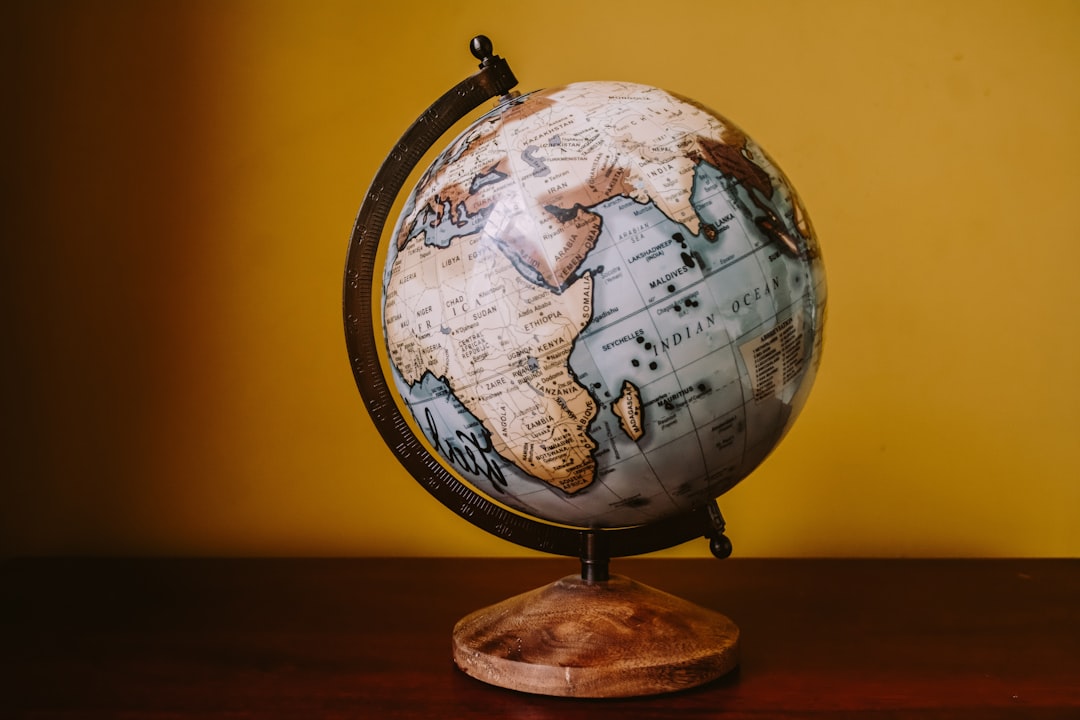Geography serves as a foundational element in comprehending the complexities of our world. It is not merely the study of maps or the physical features of the Earth; rather, it encompasses the intricate relationships between people, places, and environments. By examining geographical factors, we can gain insights into how natural landscapes influence human behavior, settlement patterns, and economic activities.
For instance, the presence of mountains can dictate trade routes, while rivers often serve as lifelines for agriculture and transportation. The geographical context provides a framework for understanding why certain civilizations flourished in specific areas while others struggled to survive. Moreover, geography plays a crucial role in addressing contemporary global challenges such as climate change, urbanization, and resource management.
As populations grow and migrate, understanding geographical dynamics becomes essential for effective policy-making and sustainable development. The interplay between human activity and the environment is evident in issues like deforestation, pollution, and habitat loss. By studying geography, we can better appreciate the delicate balance that exists between human needs and environmental sustainability, ultimately fostering a more informed and responsible global citizenry.
Key Takeaways
- Geography plays a crucial role in shaping our understanding of the world and its diverse landscapes.
- Historical development of different regions provides valuable insights into the evolution of societies and their unique characteristics.
- Exploring diverse cultures and traditions across the globe helps in fostering a greater appreciation for global diversity.
- Geography has a significant impact on the development of civilizations, influencing their growth and interactions with the environment.
- History continues to exert a profound influence on modern societies, shaping their values, beliefs, and institutions.
Tracing the Historical Development of Different Regions
The historical development of various regions is a tapestry woven from countless threads of human experience, shaped by geography, culture, and socio-political dynamics. Each region has its unique narrative, influenced by factors such as climate, natural resources, and interactions with neighboring societies. For example, the fertile crescent of Mesopotamia is often regarded as the cradle of civilization due to its rich agricultural potential, which allowed early societies to thrive.
The development of writing systems, legal codes, and urban centers in this region laid the groundwork for future civilizations. In contrast, regions like sub-Saharan Africa experienced different trajectories due to their diverse environments and historical contexts. The vast savannas and dense rainforests presented both challenges and opportunities for human settlement.
The rise of powerful empires such as Mali and Songhai was facilitated by trade routes that connected them to North Africa and beyond. These historical developments illustrate how geography not only shapes the physical landscape but also influences the social and political evolution of societies over time.
Exploring the Diverse Cultures and Traditions Across the Globe

The world is a mosaic of cultures and traditions, each with its distinct characteristics shaped by historical experiences and geographical contexts. From the vibrant festivals of India to the solemn rituals of indigenous tribes in the Amazon rainforest, cultural expressions reflect the values, beliefs, and histories of communities. For instance, the celebration of Diwali in India symbolizes the triumph of light over darkness and is deeply rooted in Hindu mythology.
This festival not only showcases the rich tapestry of Indian culture but also highlights the significance of community and family ties. In contrast, the traditions of the Sami people in Northern Europe emphasize their deep connection to nature and reindeer herding. Their cultural practices are intricately linked to the Arctic environment, showcasing how geography influences lifestyle choices.
The Sami’s unique language, music, and clothing reflect their adaptation to a harsh climate while preserving their identity amidst modernization. Such examples underscore the importance of recognizing and appreciating cultural diversity as a vital aspect of our shared human experience.
Understanding the Impact of Geography on the Development of Civilizations
| Geographical Factor | Impact on Civilization Development |
|---|---|
| Climate | Climate affects agriculture, trade, and settlement patterns. |
| Topography | Mountains, rivers, and other natural features influence transportation, communication, and defense. |
| Resources | Availability of natural resources such as water, minerals, and fertile land impacts economic development and technological advancement. |
| Location | Proximity to other civilizations and trade routes can lead to cultural exchange and influence. |
| Access to Sea | Coastal civilizations have advantages in trade, communication, and naval power. |
Geography has been a decisive factor in shaping the rise and fall of civilizations throughout history. The availability of natural resources such as water, fertile land, and minerals has often determined where societies could thrive. For instance, ancient Egypt’s civilization flourished along the banks of the Nile River, which provided irrigation for agriculture and served as a vital transportation route.
The predictable flooding of the Nile allowed for consistent crop yields, enabling the development of a complex society with advancements in architecture, writing, and governance. Conversely, geographical barriers can hinder development and isolate communities. The rugged terrain of the Himalayas has historically limited interaction between cultures in South Asia and Central Asia.
This isolation can lead to unique cultural developments but may also restrict economic opportunities. Understanding these geographical influences allows us to appreciate how civilizations have adapted to their environments while also recognizing the challenges they faced in their quest for progress.
Examining the Influence of History on Modern Societies
The legacies of historical events continue to shape modern societies in profound ways. Colonialism, for instance, has left an indelible mark on many nations, influencing their political structures, economies, and social dynamics. The arbitrary borders drawn during colonial times often disregarded ethnic and cultural boundaries, leading to ongoing conflicts in regions such as Africa and the Middle East.
These historical injustices have created complex challenges that modern societies must navigate as they strive for stability and reconciliation. Additionally, historical movements such as industrialization have transformed economies and social structures across the globe. The shift from agrarian societies to industrial powerhouses has led to urbanization, changes in labor dynamics, and shifts in cultural norms.
For example, cities like Manchester became symbols of industrial progress during the 19th century but also faced significant social challenges such as overcrowding and pollution.
Celebrating the Rich Diversity of Languages and Customs

The Importance of Language Preservation
The preservation of languages is crucial not only for maintaining cultural identity but also for safeguarding traditional knowledge systems that have been passed down through generations. Indigenous languages, for instance, often contain words that describe local flora and fauna or social relationships that may not exist in other cultures.
Customs and Rituals: Windows into Societal Values
Customs and rituals further enrich linguistic diversity by providing insight into societal values and beliefs. From marriage ceremonies to rites of passage, these practices often reflect deep-rooted traditions that connect individuals to their heritage.
Celebrating Diversity in an Interconnected World
In Japan, the tea ceremony embodies principles of harmony, respect, purity, and tranquility—values that are central to Japanese culture. Celebrating this diversity fosters mutual respect among cultures while promoting understanding in an increasingly interconnected world.
Recognizing the Interconnectedness of Global Economies and Trade Routes
The interconnectedness of global economies is a testament to humanity’s ability to forge relationships across vast distances through trade routes that have evolved over centuries. Historical trade networks such as the Silk Road facilitated not only the exchange of goods but also ideas, technologies, and cultural practices between diverse civilizations. This exchange has had lasting impacts on societies; for instance, the introduction of paper from China revolutionized communication in Europe.
In contemporary times, globalization has accelerated this interconnectedness through advancements in technology and transportation. Supply chains now span continents, allowing products to be manufactured in one part of the world and consumed in another. However, this interconnectedness also brings challenges such as economic disparities and environmental concerns.
Understanding these dynamics is essential for navigating the complexities of modern economies while promoting equitable growth that benefits all nations involved.
Preserving and Honoring the Cultural Heritage of Indigenous Peoples
The cultural heritage of indigenous peoples represents a vital aspect of global diversity that deserves recognition and preservation. Indigenous communities possess unique knowledge systems that are intricately tied to their ancestral lands and traditional practices. This knowledge encompasses sustainable resource management techniques that have been honed over centuries—insights that are increasingly relevant in addressing contemporary environmental challenges.
Efforts to preserve indigenous cultures often face significant obstacles due to globalization and modernization pressures that threaten traditional ways of life. Initiatives aimed at revitalizing indigenous languages, promoting traditional arts, and protecting sacred sites are crucial for ensuring that these cultures continue to thrive. By honoring their heritage through education and advocacy, we can foster greater appreciation for indigenous contributions to humanity’s collective history while promoting social justice and equity in our global society.
If you are interested in exploring the nature and value of knowledge within the realm of social studies, you may find this article to be insightful. It delves into the importance of knowledge in shaping our understanding of the world and how it influences our decision-making processes. Understanding truth functions and logical relations, as discussed in this related article, can also be beneficial in analyzing and interpreting information within the field of social studies.
FAQs
What are the different types of social studies?
There are several different types of social studies, including history, geography, economics, political science, sociology, anthropology, and psychology.
What is the purpose of studying social studies?
The purpose of studying social studies is to gain a better understanding of human society and the relationships between individuals and their environment. It helps to develop critical thinking skills, cultural awareness, and a sense of global citizenship.
How do the different types of social studies differ from each other?
Each type of social studies focuses on a specific aspect of human society. For example, history examines past events and their impact on society, while geography studies the Earth’s landscapes, environments, and the relationships between people and their surroundings.
How are social studies relevant in today’s world?
Social studies are relevant in today’s world as they help individuals understand current events, make informed decisions, and participate in civic life. They also provide insights into different cultures and societies, which is crucial in a globalized world.
What careers are related to social studies?
Careers related to social studies include historians, geographers, economists, political scientists, sociologists, anthropologists, psychologists, teachers, and public policy analysts. These professionals work in various fields such as education, research, government, and non-profit organizations.
























+ There are no comments
Add yours